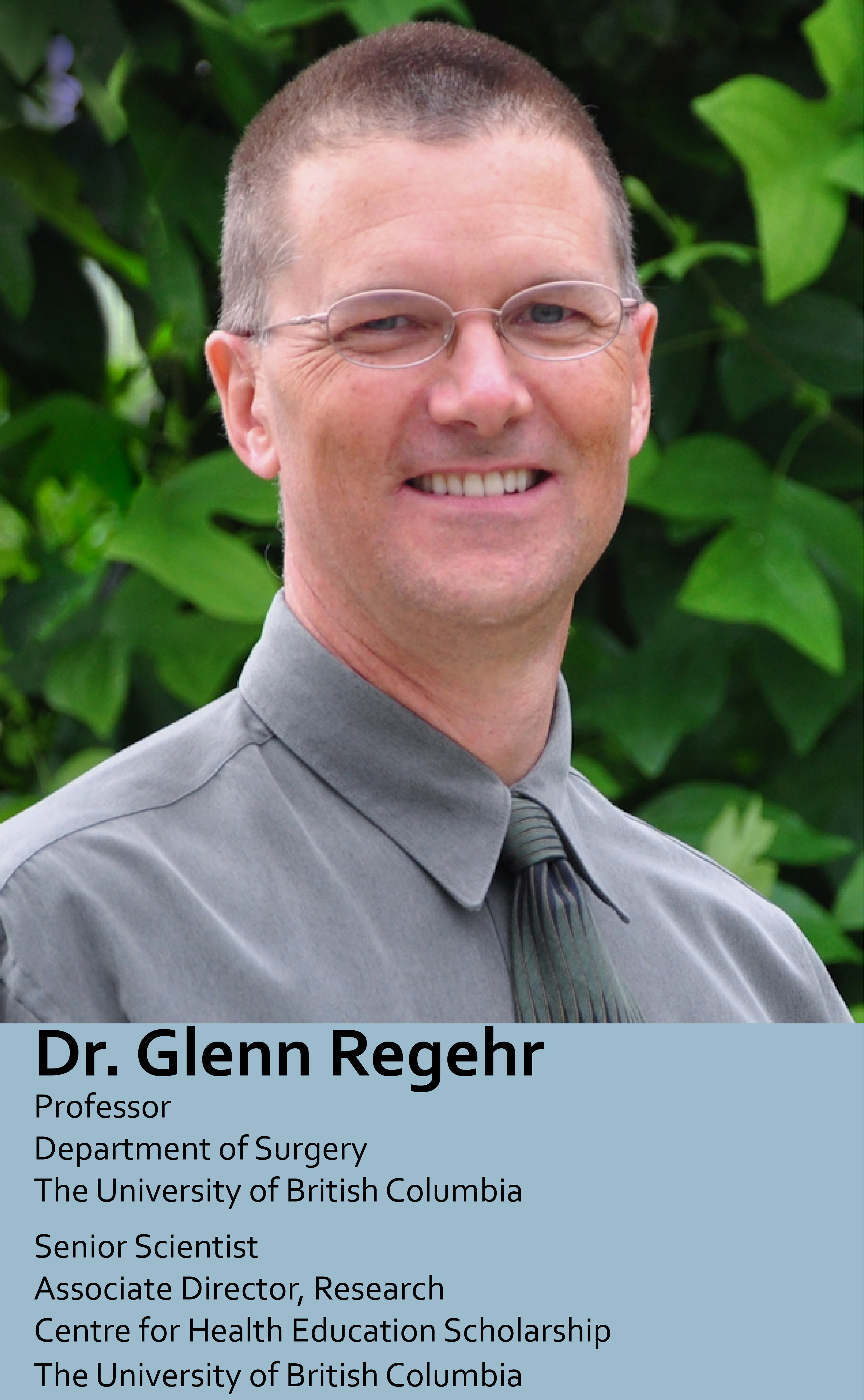Dr. Glenn Regehr
The dangerous pursuit of independence

Date: Wednesday, December 14, 2016*
*Take note this session is one week earlier than the usual timing of Rounds
Time: 12:00pm to 1:30pm (feel free to bring a bagged lunch)
Locations:
- DHCC 2267
- IRC 305
- PHRM 3321
- MSB 107
- RJH CA 120
- KGH CAC 237
- NHSC 9-374
- Surrey Central City (Manning Room 4109)
Remote:
- Movi E, ID 30215
- Additional video conference options are available. Please email ches.communications@ubc.ca for the connection details.
Abstract
The notion of independent practice as a goal for expert clinicians is embedded in many of our educational and clinical approaches. It is explicit in our model of training as “progressive independence”. It is implicit in our efforts to instill in our learners the skills and attitudes of independent self-regulation. And it is deeply embedded in our students’ construction of the hallmark clinician as the “go to” person who is asked the hard questions and has all the answers.
However this drive to independence has many potentially negative influences on training and practice. At the individual level, it produces reluctance to ask for help and creates a high risk for isolation and burnout. At the system level, it leads to silos of expert practice with little attention to the gaps between these silos, where errors and inefficiencies thrive. In the context of learning, it leads to our treatment of feedback from others as threats to autonomy rather than opportunities to improve.
This session will describe the multiple ways in which the construct of independence is manifested in health care training and practice, it will reconsider several previously identified issues in health care education and practice in light of the “independence problem”, and it will begin to explore how we might better represent the hallmark expert as a fully participating partner in a health care system rather than as a “fully independent practitioner”.
Biography
Dr. Glenn Regehr completed his PhD in cognitive science from McMaster University and joined the University of Toronto as a researcher in health professions education in 1993. Since then, Dr. Regehr has been involved in the development and leadership of three HPE research units across Canada: The Wilson Centre (University of Toronto); The Academy for Innovation in Medical Education (University of Ottawa) and The Centre for Health Education Scholarship (University of British Columbia). He has co-authored over 200 peer reviewed papers and chapters on a range of topics including: OSCE measures, authentic clinical assessment, professionalism, professional identity formation, self-assessment, self-regulation, and feedback. In addition to over 20 awards for individual papers and presentations, his career awards include the NBME Hubbard Award (2007), the CAME Ian Hart Award for Distinguished Contribution to Medical Education (2013), and the inaugural Career Mentorship Award sponsored by the CAME Early Career Educator Group (2015).
Accreditation:
The University of British Columbia Division of Continuing Professional Development (UBC CPD) is fully accredited by the Committee on Accreditation of Continuing Medical Education (CACME) to provide study credits for continuing medical education for physicians. This course has been reviewed and approved by the UBC Division of Continuing Professional Development. This Group Learning course meets the certification criteria of the College of Family Physicians of Canada and has been certified by UBC CPD for up to 1.5 Mainpro+ credits. This course is an Accredited Group Learning Activity eligible for up to 1.5 MOC Section 1 credits as defined by the Maintenance of Certification program of the Royal College of Physicians and Surgeons of Canada. Each physician should claim only those credits he/she actually spent in the activity.
